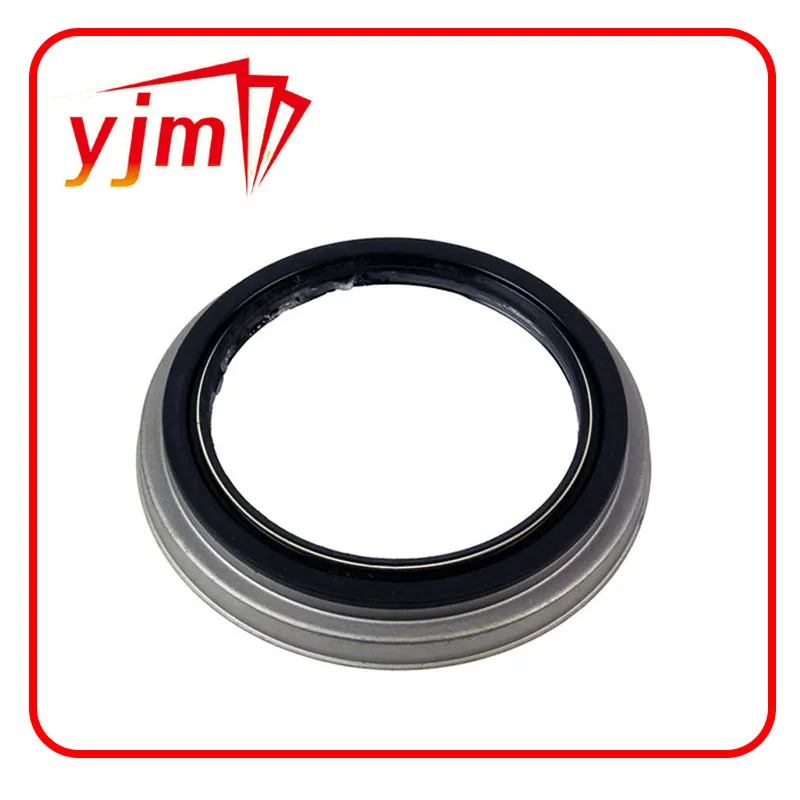high temperature oil seal
Understanding High Temperature Oil Seals Essential Components for Mechanical Systems
High temperature oil seals are specialized components designed to maintain the integrity of mechanical systems by preventing the escape of lubricants while withstanding elevated temperature conditions. These seals are critical in various applications, including automotive engines, industrial machinery, and aerospace equipment, where reliable performance is essential for efficiency and longevity.
What Are Oil Seals?
Oil seals, also known as lip seals or fluid seals, play a vital role in preventing the leakage of oil and grease from bearings and other components. They are typically made from rubber, silicone, or other elastomeric materials that provide flexibility and durability. High temperature oil seals, in particular, are engineered to endure extreme heat without losing their sealing properties or integrity.
Materials and Design Features
The materials used in high temperature oil seals must withstand not only high temperatures but also the chemical nature of the fluids they contain. Common materials include
1. Fluoroelastomers (FKM) Known for their exceptional heat and chemical resistance, fluoroelastomers can operate effectively in temperatures up to 200°C (392°F) or higher. 2. Polyurethane This material offers good abrasion resistance and can handle moderate temperature variations, making it suitable for various industrial applications.
3. Silicone Silicone oil seals are typically used in applications where flexibility is crucial, as they can operate effectively in a wide range of temperatures, often between -55°C to 200°C (-67°F to 392°F).
The design of high temperature oil seals also incorporates features such as
- Positive Lip Design The lip must maintain a tight contact with the shaft or housing to prevent leakage while allowing for slight movements.
- Reinforcement Structures Some seals include metal or fabric reinforcement to maintain their shape and integrity under high-pressure and high-temperature conditions.
- Special Coatings Certain oil seals are treated with special coatings to enhance their resistance to wear and environmental factors, thus prolonging their service life.
high temperature oil seal

Applications
High temperature oil seals are widely used in various industries, including
- Automotive In engines, transmissions, and differentials, these seals prevent oil leaks and maintain proper lubrication, which is crucial for efficient performance and engine life.
- Aerospace Aircraft engines and gearboxes demand components that can perform reliably at extreme temperatures, making high temperature oil seals essential for safety and efficiency.
- Industrial Machinery Equipment used in manufacturing processes often experiences high thermal cycles, necessitating seals that can withstand these conditions while reducing maintenance downtime.
Challenges and Considerations
While high temperature oil seals are designed to perform effectively under demanding conditions, improper selection, installation, or maintenance can lead to premature failures. Therefore, several factors must be considered
- Temperature Range Ensure that the selected seal can operate within the specific temperature range of your application.
- Fluid Compatibility Confirm that the seal material is suitable for the type of oil or fluid it will be exposed to.
- Installation Practices Follow proper installation guidelines to prevent damage during the process, which can compromise the seal's functionality.
Conclusion
High temperature oil seals are indispensable components that contribute significantly to the performance and reliability of mechanical systems. By understanding their materials, design features, and appropriate applications, engineers and technicians can make informed decisions that enhance machinery longevity and efficiency. Investing in quality high temperature oil seals is crucial for preventing leaks, reducing maintenance costs, and ensuring optimal operation under challenging conditions.
-
Understanding Automotive Oil Seals: Essential Components for Engine and Shaft Protection
News Jul.30,2025
-
The Importance of Heavy Duty Seals in Industrial and Residential Applications
News Jul.30,2025
-
Exploring Industrial Oil Seals: From Felt Oil Seals to TTO and CFW Solutions
News Jul.30,2025
-
Essential Guide to Oil Seals: From Radial to Metal-Cased Seals for Industrial Reliability
News Jul.30,2025
-
Choosing the Right Oil Seals and Gaskets for Industrial and Automotive Applications
News Jul.30,2025
-
Cassette Seals: Durable Sealing Solutions for Harsh Environments
News Jul.30,2025
-
Understanding the Front Main Engine Seal: Purpose, Maintenance, and Installation
News Jul.29,2025
Products categories















